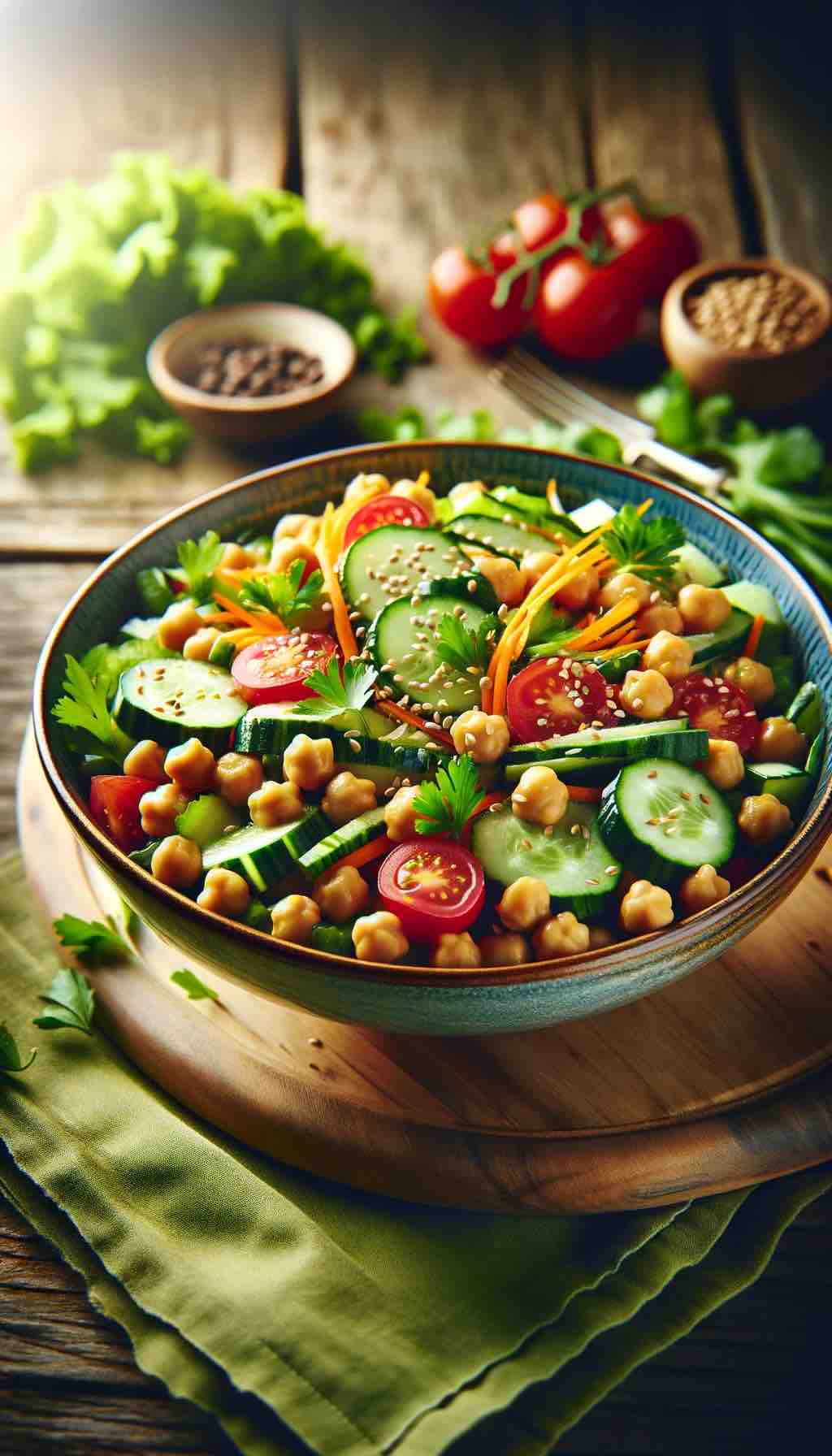
Introduction:
When embarking on the beautiful yet complex journey of pregnancy, every bite counts towards nurturing the life growing inside you. Among the plethora of dietary choices, one humble yet mighty contender stands out in the realm of prenatal nutrition – the chickpea, also fondly known as the garbanzo bean. This unassuming legume, often nestled in your pantry, is more than just an ingredient; it’s a nutritional powerhouse poised to play a pivotal role in your pregnancy diet.
Chickpeas have graced kitchens and dining tables across cultures for centuries, not only for their versatility and flavor but also for their impressive nutritional profile. As you navigate through the trimesters, each with its unique dietary demands, understanding how to leverage the benefits of chickpeas can be a game-changer for your health and that of your baby. From being a complete protein source to a treasure trove of vital nutrients like folate, iron, and fiber, chickpeas emerge as an unsung hero in prenatal care.
But, like any food, they come with their nuances. How do different types of chickpeas vary in nutrition? Are there specific considerations for consuming them at different stages of pregnancy? And how can you incorporate them deliciously and safely into your diet? This blog post aims to unfold the answers, guiding you through a journey of discovery where chickpeas aren’t just a food, but a companion in your extraordinary journey of motherhood.
Join us as we delve into the world of chickpeas, exploring their nutritional bounty, addressing potential risks, and sharing culinary inspirations that cater to your ever-evolving pregnancy palate.
The Nutritional Profile of Chickpeas in Pregnancy
As we embark on the journey of exploring chickpeas during pregnancy, it’s crucial to understand what makes these legumes a nutritional standout. Chickpeas are more than just a staple in our pantries; they are a dense source of essential nutrients that play a vital role in supporting both maternal and fetal health.
Protein Powerhouse: One of the most remarkable features of chickpeas is their high protein content. Protein is the building block of life, essential for the growth and development of your baby’s tissues and organs. For vegetarians, vegans, or those reducing meat intake, chickpeas offer a plant-based protein solution that’s both versatile and satisfying.
Folate: The Prenatal Superhero: Perhaps no nutrient is as crucial during pregnancy as folate. This B-vitamin is vital for preventing neural tube defects in the developing fetus, a critical aspect of early pregnancy. Chickpeas are a natural source of folate, making them an excellent dietary addition for expectant mothers.
Rich in Fiber: Fiber is a pregnant woman’s ally, especially when dealing with the common woes of pregnancy such as constipation and hemorrhoids. Chickpeas, with their high fiber content, help maintain digestive health, ensuring smoother bowel movements and aiding in overall gut health.
Iron for Blood Health: Iron’s role in pregnancy cannot be overstated. It’s essential for forming red blood cells and transporting oxygen throughout your body and to your growing baby. Anemia, a common concern in pregnancy, can be combated with iron-rich foods like chickpeas.
Magnesium, Potassium, and More: Chickpeas are also a treasure trove of other essential minerals. Magnesium, for instance, plays a role in over 300 enzymatic reactions in the body, including those needed for healthy fetal development. Potassium, vital for blood pressure regulation, is another mineral abundantly found in chickpeas.
A Symphony of Vitamins: Beyond the minerals, chickpeas are rich in several vitamins. Vitamin B6 in chickpeas helps with morning sickness – a frequent discomfort in pregnancy. Vitamins A, C, and E, all present in chickpeas, are antioxidants that play various roles in maintaining both maternal and fetal health.
Addressing Pregnancy-Specific Nutritional Needs with Chickpeas
As your pregnancy progresses, your nutritional needs evolve. Chickpeas, with their diverse nutrient profile, can be a constant companion catering to these changing needs.
First Trimester: In early pregnancy, the focus is on the baby’s foundational development. Folate from chickpeas is crucial here. The protein and fiber content also help as your body starts adjusting to pregnancy, potentially aiding in easing morning sickness and stabilizing energy levels.
Second Trimester: As the baby grows, so does the need for protein. Chickpeas can be a go-to source for this increased requirement. The magnesium in chickpeas also becomes more critical as it helps with the baby’s bone development and can aid in preventing leg cramps, a common second-trimester complaint.
Third Trimester: In the final stretch of pregnancy, the focus is on preparing for birth and supporting the baby’s final growth spurt. The iron in chickpeas is vital now, supporting increased blood volume. The fiber continues to be important for digestive health as the growing uterus puts more pressure on your intestines.
Incorporating Chickpeas into Your Pregnancy Diet
Chickpeas’ versatility in the kitchen makes them an easy addition to your pregnancy diet. From creamy hummus to hearty chickpea curries, they can be included in various dishes that cater to your cravings and nutritional needs. You can toss them in salads, blend them into soups, or even bake with chickpea flour for a nutrient-packed treat. The key is to keep it varied and enjoyable, ensuring you reap the benefits of this incredible legume throughout your pregnancy journey.
In summary, chickpeas stand out as a nutritional gem in the context of pregnancy. Offering a range of essential nutrients, they support various aspects of prenatal health. Whether you’re in the early stages of pregnancy or nearing the end, incorporating chickpeas into your diet can contribute significantly to a healthy, nourishing, and enjoyable pregnancy experience.
Navigating Potential Risks and Precautions with Chickpeas During Pregnancy
While chickpeas are undoubtedly beneficial, it’s important to navigate their consumption with awareness of potential risks and necessary precautions, especially during pregnancy.
Understanding Gastrointestinal Sensitivities: A common concern with chickpeas, as with many legumes, is their potential to cause gastrointestinal discomfort. This includes bloating, gas, and abdominal cramps – symptoms that can be particularly pronounced during pregnancy due to the increased sensitivity of the digestive system. To mitigate these effects, start with smaller portions and gradually increase intake. Thoroughly rinsing canned chickpeas can help remove some of the oligosaccharides that contribute to gas.
Allergic Reactions: Although rare, chickpea allergies can occur and may be more noticeable during pregnancy due to heightened immune responses. Symptoms can range from mild (such as rashes or gastrointestinal discomfort) to severe (such as difficulty breathing). If you have a history of legume allergies or notice adverse reactions after consuming chickpeas, it’s advisable to consult with your healthcare provider.
Kidney Stone Considerations: Chickpeas contain oxalates, which, in large quantities, can contribute to the formation of kidney stones. If you have a history of kidney stones or are at risk, moderating chickpea consumption and ensuring adequate hydration can help reduce this risk.
Iron Absorption: While chickpeas are a good iron source, they also contain phytates, which can inhibit iron absorption. This is particularly crucial in pregnancy, where iron needs are higher. Combining chickpeas with vitamin C-rich foods can enhance iron absorption, making it more effective for maintaining healthy iron levels.
Preparation and Cooking: Proper preparation of chickpeas is essential. For dried chickpeas, adequate soaking and cooking are necessary to ensure they’re digestible and to reduce anti-nutrients. Undercooked chickpeas can be hard to digest and may lead to gastrointestinal discomfort.
Quantity and Balance: While chickpeas are nutritious, they should be part of a varied and balanced diet. Relying too heavily on any single food source can lead to nutritional imbalances. It’s important to combine chickpeas with a wide range of other foods to ensure a comprehensive intake of all necessary nutrients during pregnancy.
Adapting Chickpea Consumption Throughout Pregnancy
Understanding how to adapt chickpea consumption to suit your changing body and needs during pregnancy can enhance both their benefits and enjoyment.
First Trimester Adaptations: During early pregnancy, when nausea and vomiting may be prevalent, chickpeas can be introduced in milder forms, such as in soups or as a small addition to salads. This provides the needed nutrients without overwhelming a sensitive stomach.
Second Trimester Adjustments: As appetite typically increases in the second trimester, chickpeas can be more boldly incorporated into meals. Chickpea-based dishes like falafel or hummus can provide satisfying and nutrient-rich options.
Third Trimester Focus: In the later stages of pregnancy, when digestion can be slower, lighter chickpea dishes can be beneficial. Incorporating chickpeas into salads or as a side dish, rather than the main protein source, can help maintain comfort while still providing necessary nutrients.
In conclusion, while chickpeas offer a plethora of benefits for pregnant women, mindful consumption is key. Understanding potential risks and adapting their use in your diet throughout the different stages of pregnancy will ensure that you can enjoy the benefits of chickpeas while minimizing any discomforts or risks. This careful approach allows chickpeas to be a valuable and enjoyable component of your pregnancy nutrition plan.
Creative and Nutritious Ways to Incorporate Chickpeas in Pregnancy Diet
Embracing the versatility of chickpeas in your pregnancy diet can be both a delightful culinary journey and a strategic move towards optimal prenatal nutrition. Here are some creative and nutritious ways to include chickpeas in your meals, tailored to suit your taste preferences and dietary needs during pregnancy.
1. Breakfast Innovations:
- Chickpea Flour Pancakes: Start your day with protein-packed chickpea flour pancakes. They are gluten-free and can be topped with fresh fruits or a drizzle of honey for added nutrients and flavor.
- Chickpea Scramble: For a twist on traditional scrambled eggs, try a chickpea scramble. Mash cooked chickpeas and sauté them with your favorite veggies and spices. This dish provides a morning boost of fiber and protein.
2. Nutrient-Rich Snacks:
- Hummus and Veggie Sticks: Hummus, made from blended chickpeas, is a perfect dip for crunchy vegetables. It’s a wholesome snack that balances the creaminess of hummus with the crispness of fresh veggies, offering a spectrum of nutrients essential for pregnancy.
- Roasted Chickpeas: Oven-roasted chickpeas seasoned with your choice of herbs and spices make for a crunchy, satisfying snack. They are ideal for on-the-go munching and can help curb those pregnancy cravings healthily.
3. Lunch and Dinner Delights:
- Chickpea Salads: Toss cooked chickpeas into a salad with a mix of greens, nuts, and a light dressing. This meal is not only refreshing but also packed with fiber, vitamins, and minerals.
- Chickpea Curries and Stews: Chickpea-based curries or stews are hearty options for lunch or dinner. They can be rich in flavors, providing a comforting and filling meal that’s packed with protein and can be easily adjusted for spice tolerance.
4. Versatile Side Dishes:
- Chickpea Pilaf: Replace rice with chickpeas in a pilaf. Cook them with a blend of spices, vegetables, and a hint of lemon for a flavorful and nutritious side dish.
- Mashed Chickpeas: As a healthier alternative to mashed potatoes, try mashed chickpeas. They can be a great accompaniment to your main course, adding variety and nutrition to your meal.
5. Dessert Options:
- Chickpea Flour Cookies or Brownies: For a guilt-free dessert, use chickpea flour to make cookies or brownies. These desserts can satisfy your sweet tooth while providing nutritional benefits.
6. Pregnancy-Specific Recipes:
- Ginger-Infused Chickpea Soup: Combat morning sickness with a ginger-infused chickpea soup. Ginger’s anti-nausea properties, combined with the wholesomeness of chickpeas, make this soup both therapeutic and nourishing.
- Iron-Rich Chickpea Spinach Curry: To boost iron intake, prepare a spinach and chickpea curry. This dish can help combat pregnancy-related anemia and is a delicious way to include more leafy greens in your diet.
7. Hydration and Chickpeas:
- Chickpea-Based Smoothies: Blend cooked chickpeas into smoothies along with fruits for an extra protein boost. It’s a unique way to stay hydrated and nourished, especially in the later stages of pregnancy.
Embracing the Flexibility of Chickpeas in Your Diet
The beauty of chickpeas lies in their flexibility to adapt to different flavors and culinary styles. Whether you’re craving something sweet, savory, spicy, or mild, chickpeas can be transformed to suit your mood and nutritional needs at any stage of pregnancy. Experimenting with these ideas can not only add variety to your diet but also ensure you’re getting a broad spectrum of nutrients essential for both you and your baby’s health.
By incorporating chickpeas into your diet in these various forms, you can enjoy their health benefits while keeping your meals interesting and diverse. This approach to prenatal nutrition recognizes the importance of both taste and health, making your pregnancy journey more enjoyable and nutritious.
Addressing Common Concerns and FAQs About Chickpeas During Pregnancy
Pregnant women often have numerous questions and concerns regarding their diet. Chickpeas, despite their nutritional benefits, are no exception. In this section, we’ll address some common concerns and frequently asked questions about incorporating chickpeas into a pregnancy diet, providing clear and helpful information.
1. How Much Chickpea is Safe During Pregnancy?
- Moderation is key when it comes to consuming chickpeas during pregnancy. While they are highly nutritious, overconsumption can lead to gastrointestinal issues like bloating and gas. A general guideline is to include chickpeas as part of your varied diet, aiming for about 1-2 servings per day.
2. Can Chickpeas Affect Gestational Diabetes?
- Chickpeas have a low glycemic index, which means they don’t cause a rapid spike in blood sugar levels. This makes them a safe and beneficial choice for women with gestational diabetes. However, it’s important to monitor overall carbohydrate intake and consult with a healthcare provider for personalized advice.
3. Are Canned Chickpeas as Nutritious as Dried Chickpeas?
- Canned chickpeas are a convenient and nutritious option, although they may contain added sodium. Rinsing them thoroughly before use can help reduce sodium levels. Dried chickpeas, which require soaking and cooking, are equally nutritious and allow for more control over added ingredients.
4. Can Chickpeas Cause Allergic Reactions During Pregnancy?
- Like any food, chickpeas can cause allergic reactions in some individuals. Symptoms can include itching, swelling, gastrointestinal discomfort, or more severe reactions. If you suspect a chickpea allergy, it’s advisable to eliminate them from your diet and consult a healthcare professional.
5. Is It Safe to Eat Chickpeas During the First Trimester?
- Chickpeas are safe to consume during the first trimester and can be particularly beneficial due to their folate content, which is crucial for fetal development. However, if you experience nausea or morning sickness, you might want to consume them in lighter forms, such as in soups or salads.
6. Can Chickpeas Help with Pregnancy-Related Constipation?
- The high fiber content in chickpeas can help alleviate constipation, a common issue during pregnancy. They aid in digestion and promote regular bowel movements. It’s important to increase fiber intake gradually and ensure adequate water consumption.
7. What Are Some Easy Ways to Include Chickpeas in a Pregnancy Diet?
- Chickpeas can be easily included in the diet in various ways: as hummus spread, in salads, soups, stews, curries, or as a roasted snack. They are versatile and can be incorporated into meals to suit different tastes and cravings.
8. Are There Any Risks in Eating Chickpeas During Pregnancy?
- The primary risks associated with chickpeas relate to gastrointestinal discomfort and potential allergic reactions. Consuming them in moderation and paying attention to how your body reacts is crucial. If you have a history of kidney stones or other specific health conditions, consult with a healthcare provider.
9. Can Chickpeas Be a Substitute for Meat in a Pregnancy Diet?
- Chickpeas are an excellent plant-based protein source and can effectively substitute meat in a pregnancy diet. This is particularly beneficial for vegetarians, vegans, or those looking to reduce meat consumption.
10. How Should Chickpeas Be Prepared for Maximum Nutritional Benefit?
- To maximize the nutritional benefits, soak dried chickpeas overnight and cook them thoroughly. For canned chickpeas, rinsing them well can help reduce sodium content. Pairing chickpeas with vitamin C-rich foods can enhance iron absorption.
In summary, chickpeas are a highly nutritious and versatile food that can be safely incorporated into a pregnancy diet. Addressing these common concerns and questions can help expectant mothers enjoy the benefits of chickpeas while being mindful of their body’s responses and nutritional needs throughout their pregnancy journey.
Concluding Thoughts on Chickpeas During Pregnancy
As we draw to the close of our comprehensive exploration of chickpeas in the context of pregnancy, it’s important to reflect on the key takeaways and how this humble legume can play a significant role in nurturing both the expectant mother and the developing baby.
A Nutritional Powerhouse: The journey through the world of chickpeas reveals their remarkable nutritional profile. Rich in proteins, fibers, vitamins, and minerals, chickpeas stand out as a stellar food choice for pregnant women. Their ability to provide essential nutrients like folate, iron, and protein makes them an invaluable component of prenatal nutrition.
Versatility in Cuisine: One of the most appealing aspects of chickpeas is their culinary versatility. Whether it’s through traditional dishes like hummus and curries or innovative recipes like chickpea flour pancakes and roasted snacks, chickpeas can be adapted to fit any meal, taste preference, and nutritional need. This versatility ensures that expectant mothers can enjoy a varied and enjoyable diet while reaping the benefits of this nutrient-rich legume.
Mindful Consumption: While the benefits of chickpeas are many, mindful consumption is key. Understanding individual digestive responses, being aware of potential allergies, and balancing chickpea intake with other dietary sources ensure that its inclusion in a pregnancy diet is both beneficial and enjoyable. The guidance of a healthcare provider can be invaluable in tailoring chickpea consumption to individual health needs and pregnancy stages.
Empowering Dietary Choices: The knowledge about chickpeas empowers pregnant women to make informed dietary choices. It underscores the importance of a balanced and varied diet, which is crucial during pregnancy. Chickpeas, with their rich nutrient profile and flexibility, can significantly contribute to meeting the nutritional demands of pregnancy while offering delightful culinary experiences.
A Companion in Your Pregnancy Journey: As we conclude, it’s evident that chickpeas can be more than just a food item; they can be a companion in the incredible journey of pregnancy. From the first trimester to the joyous moment of welcoming a new life, chickpeas can be a constant, providing nourishment, comfort, and variety in your diet.
In closing, embracing chickpeas in your pregnancy diet is not just about adding a food item to your meals; it’s about enriching your prenatal journey with a nutritious, versatile, and enjoyable food choice. As you continue to navigate the beautiful path of pregnancy, let chickpeas be a part of your story, contributing to the health and well-being of both you and your baby.
10 FAQs with answers for the blog post, providing readers with the most relevant details:
- Is it safe to eat chickpeas during pregnancy? Absolutely! Chickpeas are safe and beneficial during pregnancy, offering essential nutrients like protein, fiber, and folate.
- How much chickpeas should I eat when pregnant? Aim for 1-2 servings per day as part of a balanced diet. It’s important to eat them in moderation to avoid digestive discomfort.
- Can chickpeas help with morning sickness? Yes, the vitamin B6 in chickpeas can help alleviate nausea associated with morning sickness.
- Are canned chickpeas as nutritious as dried ones? Canned chickpeas are nutritious but may contain added sodium. Rinsing them can help reduce sodium levels. Dried chickpeas, when properly soaked and cooked, are equally nutritious.
- Do chickpeas have any side effects during pregnancy? For some, chickpeas might cause bloating and gas. Introduce them slowly into your diet and monitor how your body reacts.
- Can I eat chickpeas if I have gestational diabetes? Yes, chickpeas have a low glycemic index and are beneficial for managing blood sugar levels, making them suitable for those with gestational diabetes.
- What are some easy ways to incorporate chickpeas into my pregnancy diet? You can add them to salads, soups, or curries, make hummus, or enjoy them as a roasted snack.
- Do chickpeas provide enough iron for pregnant women? Chickpeas are a good source of iron, but it’s important to pair them with vitamin C-rich foods to enhance iron absorption.
- Are chickpeas allergy-safe during pregnancy? Chickpeas can cause allergies in some individuals. If you experience allergic symptoms, consult with your healthcare provider.
- Can chickpeas help with constipation during pregnancy? Yes, the high fiber content in chickpeas can help alleviate constipation, a common issue during pregnancy.
Blog Tags: Pregnancy Nutrition, Chickpeas, Prenatal Diet, Healthy Eating During Pregnancy, Plant-Based Protein, Gestational Diabetes, Iron-Rich Foods, Folate in Pregnancy, Digestive Health, Vegetarian Pregnancy Options














